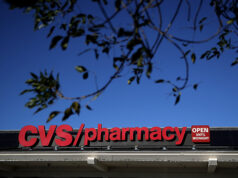
The Food and Drug Administration’s latest effort to go after citizen petitions that it says delay generic drugs’ entry into the market may have some effect, even if it is as yet unclear how powerful it will be, an expert on agency policy said.
In an Oct. 2 statement on the revised draft guidance, FDA Commissioner Scott Gottlieb highlighted the use of citizen petitions that are deemed anticompetitive when they are used to block generics’ market entry. “While the record shows that citizen petitions have rarely delayed specific generic drug approvals, there’s no doubt that the process requirements associated with 505(q) petitions can add to resource burdens on the generic drug review process and the FDA’s regulatory decision making,” Gottlieb wrote, referring to the section of the Federal Food, Drug, and Cosmetic Act to which citizen petitions are subject. “The increased burden on the FDA can take resources away from the daily work of application review.”
If the agency determines that a citizen petition was filed for the sake of delaying generic approval, it will decide whether or not to deny the petition on that basis and potentially note that determination in its response, which will be made public. “We believe this will provide an additional deterrent to pursuing these tactics,” Gottlieb wrote.
The question of whether the FDA’s move will have any teeth remains to be seen, said attorney Chad Landmon, chair of the FDA practice at New York-based law firm Axinn, Veltrop & Harkrider, in a phone interview. Still, he suggested it may yet be effective. “It’s certainly a warning shot he’s sending to the branded industry, that you shouldn’t play games, and if you do, the FDA will expose you to the world on this,” he said. If the FDA says a company has submitted a sham citizen petition only to delay generic competition, he added, it may encourage the Federal Trade Commission to file suit or, more importantly, class action by private plans. “I think this will have a positive effect of discouraging that behavior,” he said.
So-called “gaming” of the system has been blamed by many as a culprit in the problem of high drug prices. In August, the nonprofit Initiative for Medicines, Access and Knowledge released a report that blamed excessive patent protection, particularly for biologics. Meanwhile, tackling efforts to thwart generic competition and charge high prices for drugs has been a mission of Gottlieb’s FDA. In May, the agency published a list highlighting the way restricted distribution of drugs – such as restrictions imposed by drugmakers themselves or under Risk Evaluation and Mitigation Strategies – prevent generic companies from obtaining the samples they need to make their own versions.
In his statement last week, Gottlieb noted that generic manufacturers need between 2,000 and 5,000 doses of a branded drug to run studies and prove their product is bioequivalent. “Certainly on the REMS – on that front, FDA has said it’s going to be very active, and there’s pending legislation that will help that if it happens,” Landmon said.
Last April, Rep. David McKinley, R-West Virginia, introduced a bill that would amend the Federal Food, Drug, and Cosmetics Act to prohibit branded drugmakers from restricting the availability of its products for testing by companies looking to develop generics or biosimilars, including through REMS. However, the bill – H.R. 2051, the FAST Generics Act of 2017 – soon died in committee.
Photo: Alaric DeArment, MedCity News








